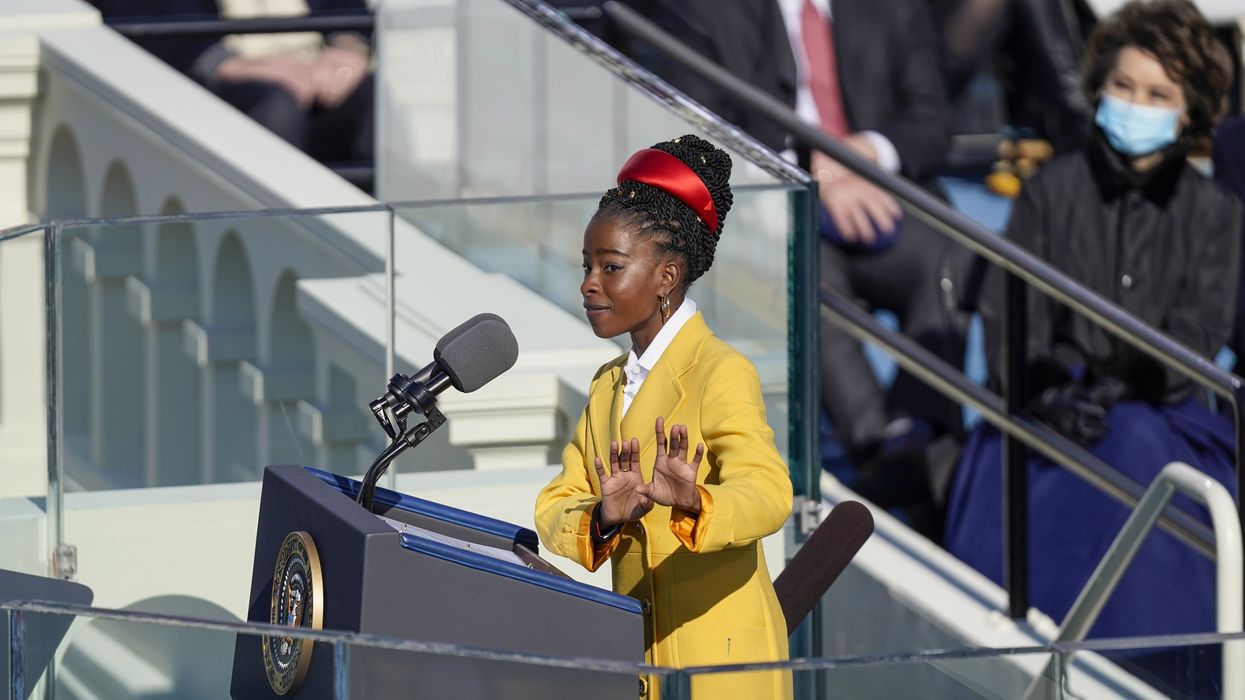Nevins is co-publisher of The Fulcrum and co-founder and board chairman of the Bridge Alliance Education Fund.
Poetry runs strong through the veins of our American heritage, and what better time to celebrate the connection between democracy and poetry than in the month of April, National Poetry Month.
Our democracy needs her poets from the past and the present.
As our politicians feed us simplistic answers to our problems, poets speak with the honesty needed for us to move forward as a people. America’s great poets reflect the rich tapestry of diverse voices — spanning race, gender, social identity, religion, ideology and age — voices that encapsulate the multifaceted American experience and guide us in understanding and embracing our collective diversity.
In the 19th century, Walt Whitman believed that the power of poetry and democracy came from their ability to make a unified whole out of scattered parts.
These words from Whitman's "I Hear America Singing" rings true today, as they did over 200 years ago:
I hear America singing, the varied carols I hear,
Those of mechanics, each one singing his as it should be blithe and strong,
The carpenter singing his as he measures his plank or beam,
The mason singing his as he makes ready for work, or leaves off work,
The boatman singing what belongs to him in his boat, the deck-hand singing on the steamboat deck …
The delicious singing of the mother, or of the young wife at work, or of the girl sewing or washing,
Each singing what belongs to him or her and to none else
In 1947, more than 70 years ago, Black poet Langston Hughes used poetry to connect us to our shared humanity and draw our attention to the messages of racial justice, equality and democracy. His poem "Freedom":
Freedom will not come
Today, this year
Nor ever
Through compromise and fear.
I have as much right
As the other fellow has
To stand
On my two feet
And own the land.
I tire so of hearing people say,
Let things take their course.
Tomorrow is another day.
I do not need my freedom when I'm dead.
I cannot live on tomorrow's bread.
Freedom
Is a strong seed
Planted
In a great need.
I live here, too.
I want my freedom
Just as you.
And who can forget Jan. 20, 2021, at President Joe Biden's inauguration, when then 22-year-old poet laureate Amanda Gorman recited these powerful words from "The Hill We Climb," reminding us all that “our nation isn’t broken but simply unfinished.”
When day comes we ask ourselves,
where can we find light in this never-ending shade?
The loss we carry,
a sea we must wade
We’ve braved the belly of the beast
We’ve learned that quiet isn’t always peace
And the norms and notions
of what just is
Isn’t always just-ice
And yet the dawn is ours
before we knew it
Somehow we do it
Somehow we’ve weathered and witnessed
a nation that isn’t broken
but simply unfinished.
Gorman told an interviewer that "poetry is typically the touchstone that we go back to when we have to remind ourselves of the history that we stand on, and the future that we stand for. Now more than ever, the United States needs an inaugural poem."
And so, on this last full week of National Poetry Month, perhaps you will reflect on poetry that moves you and can inspire others. The Fulcrum will share poetry from the past and present with the hope of offering our readers the opportunity to heal emotional pain, to celebrate, reflect, and inspire, and perhaps most importantly to live.
Not only will we share previously published poetry, but we hope our readers will inspire us with writings of their own. Please share your writings or your thoughts as to the power of poetry to strengthen our democracy and our bond as Americans. You may email us at: pop-culture@fulcrum.us.




















Trump & Hegseth gave Mark Kelly a huge 2028 gift